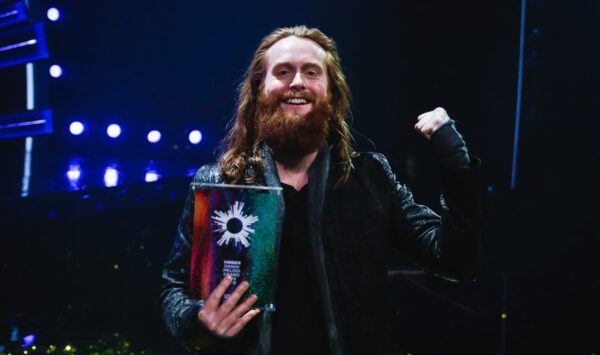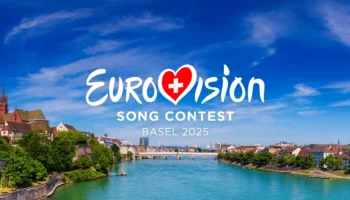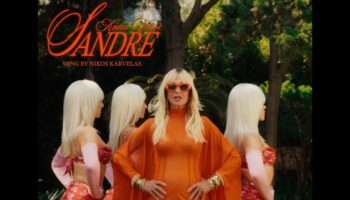Denmark’s Eurovision entry Higher Ground by Rasmussen encompasses ancient roots and modern imagination.
Ancient sagas and modern themes
Following his victory at Dansk Melodi Grand Prix 2018 last week, singer Jonas Flodager Rasmussen – or simply Rasmussen – and his entry Higher ground have already drawn attention, Eurofans referring to the song as “the Viking entry”. Whether personal opinions are positive or negative, the Viking-inspired entry is not merely another gimmick, as it echoes ancient Norse cultures that have captured the modern imagination by storm.
Higher ground by Rasmussen is said to be inspired by Icelandic sagas (ancient Nordic stories) about Saint Magnus Erlendsson the Martyr, Earl of Orkney in the 12th century, and perfectly fits within the popularity of TV-shows such as Game of Thrones, The Last Kingdom and, of course, Vikings. The somewhat sombre, yet haunting and heroic composition, sung by an artist who certainly looks the part, could well be the theme song for any popular series.
Graves, raids and Lisbon
Coincidence or not, Rasmussens victory coincides with the indentification of a mass grave containing a Danish Viking army in Repton, England, hailing back to the first major Viking invasion of the United Kingdom in 873 CE. The enigmatic grave was first discovered by archeologists Martin Biddle and Birthe Kjølbye-Biddle in 1979, who excavated the site between 1974 and 1988.
And this not the only example at how Higher ground connects history with contemporary culture.
In an interview with Danish broadcaster DR, archeologist Jeanette Varberg of the National Museum of Denmark, who is working on a book about the Viking raid on Lisbon (!) in 844 CE, discusses Rasmussen’s entry and its ties to ancient and modern culture:
He’s a good singer, but he also fits in perfectly with the times. When I saw that he’d won on Saturday, I thought that the interest in Vikings is now peaking. Our ancestors have already been over and occupied Lisbon. They plundered the city and burned it down – just as we usually did on raids.
Popular culture, fashion statements and Eurovision
Jeanette Varberg states that, although somewhat adapted and dramatized, series such as Vikings portray Viking culture relatively realistically:
The various television series recreate the past on screen and through their characters. You do not need to read books to learn about history, it has now become entertainment.
Moreover, the fascination with ancient European cultures such as the Vikings also affects personal adornment and fashion:
Young men are growing big beards, people are getting tattoos with Viking symbols, and books are being published that show how to plait hair in a Norse pattern. There’s something fascinating about these pirates, who had a brotherhood and preferred to die on the battlefield than at home in their beds. There’s something recklessly adventurous about it all.
No doubt, Rasmussen is ready to set sail to Lisbon, not to raid but to conquer the Eurovision stage!
(Source: www.thelocal.dk)
About Rasmussen
Jonas Flodager Rasmussen (Viborg, Denmark, 1985) is a Danish singer and actor, professionally known by the mononym Rasmussen.
Having studied dramaturgy and music at Aarhus University, Rasmussen is best known as the frontman of the cover band Hair Metal Heröes, who perform songs by artists such as ABBA and Elton John.
Rasmussen has furthermore starred in musicals, including Les Misérables, Rent and West Side Story.
He currently also works as a teacher at the School of Performing Arts in Viborg and at Aarhus Theatre Learning.
Rasmussen won the Dansk Melodi Grand Prix 2018 with the song Higher ground, thus representing Denmark at the 2018 Eurovision Song Contest in Lisbon, Portugal.




